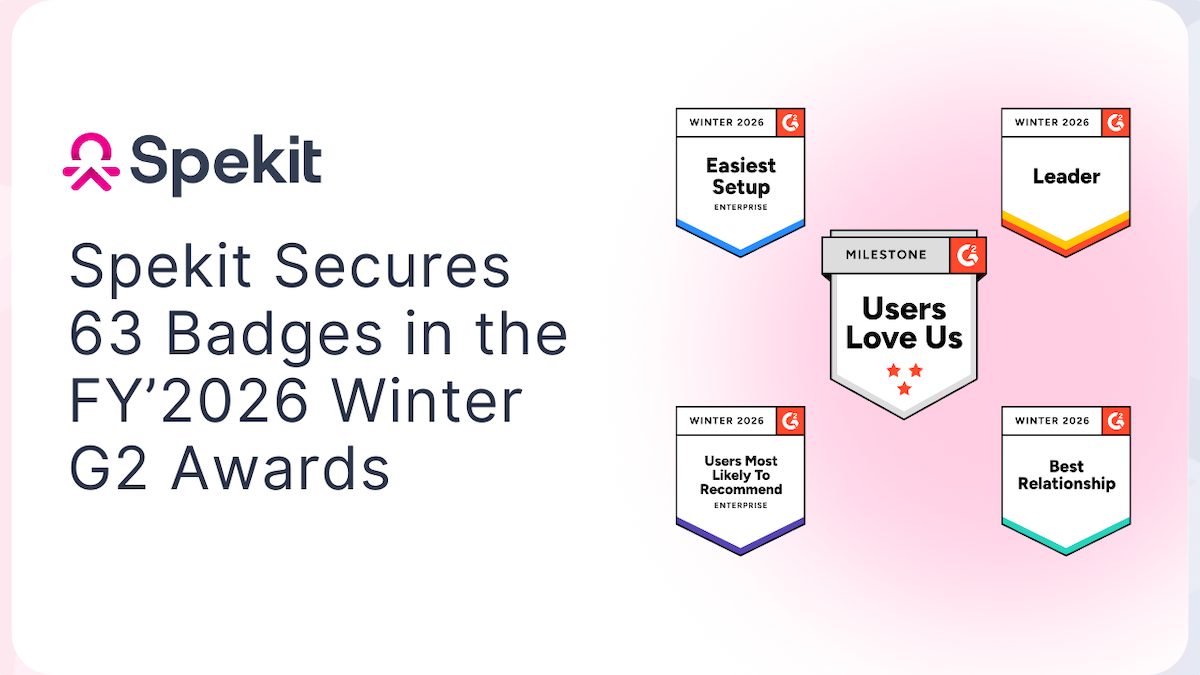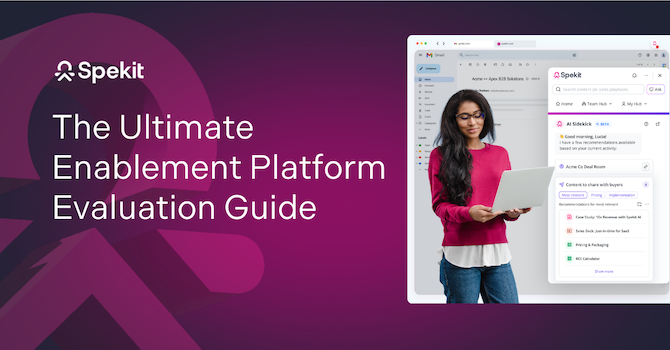More than 80% of sales teams are implementing AI, and they’re already seeing the return, with 83% of sales teams with AI seeing revenue increase versus 66% without AI. A big part of why AI sales tools are becoming so instrumental is because they give back valuable time to sellers, which is why more and more teams are embracing AI sales assistants.
In this article, we’ll discuss just what an AI sales assistant means, what it can do for your sales and revenue, and how to start implementing your own AI assistant.
What Is an AI Sales Assistant?
An AI sales assistant is an AI-driven sales tool that uses machine learning and natural language processing to assist sales professionals throughout the sales process. This tool helps salespeople with various tasks, from writing emails to providing them with the training they need during the onboarding process. AI sales assistants can streamline workflows and automate tasks that would otherwise have to be manually completed by salespeople.
What Is a Just-In-Time Sales Assistant?
A just-in-time sales assistant is a type of AI sales tool in which assistance is provided right in the salesperson’s flow of work. A just-in-time sales assistant will provide help to a salesperson on the platforms they’re already using, delivered right when they need it most.
Can an AI Assistant Replace Sales Professionals?
An AI sales assistant doesn’t replace sales professionals—it just makes their job easier! As technology advances, customers are saying that they actually want more human interaction, with 75% of people saying that they’d rather interact with a real person during the sales process than a piece of technology.
While an AI assistant can do many manual tasks that sales professionals would have to do on their own without AI, like data entry and lead scoring, there are still many parts of the sales process that require a human touch.
How an AI Sales Assistant Can Help Your Team
If you’re thinking about introducing an AI sales assistant to your company, here are some of the ways your sales team and other customer-facing teams can benefit.
Creates More Effective Sales Materials
AI can take your sales materials even further. Research shows that customers prefer AI-generated content to human-written content, finding it to be more persuasive, and persuasive content is just what your sales team needs.
Personalization also is key. McKinsey found that 76% of consumers are more likely to buy from a brand that personalizes sales interactions. That personalized content can also help boost your customer retention and acquisition, as 78% said they’d recommend a brand that personalizes interactions to their family and friends, while 78% also said that personalized interactions make them more likely to repurchase. Without AI, personalizing every interaction with potential customers would be a daunting task.
A just-in-time sales assistant, like Spekit, makes personalization even simpler. Spekit unpacks your emails and previous interactions with prospects to provide you with the content you need to close that deal, from white papers to case studies to one-sheets, delivered right in your flow of work.

Speeds Up Sales Team Learning
That personalized touch isn’t just good for creating more effective sales content and collateral—it can also drastically improve your onboarding process. When you use an AI sales assistant, you can better tailor your onboarding process to the needs of your employees. AI will use data to determine what your sellers need to learn, preventing them from spending time focusing on skills they’ve already honed.
Spekit found that the way that sales reps want to learn the most is to “learn by doing.” With a just-in-time sales assistant with just-in-time learning capabilities, they learn while using the tools that they’ll be expected to use every day—learning while doing their expected duties. Spekit users found that just-in-time learning significantly reduced onboarding time, with an average 30% faster ramp-up time for sales reps.
Automates Repetitive Tasks and Content Creation
Research shows that sales reps are only spending 30% of their week actually selling. Other parts of their week are eaten up by manual tasks, like generating quotes, scoring leads, and entering customer and sales information.
An AI sales assistant takes many of these manual tasks off of your sellers’ plates. As a part of your sales enablement efforts, it’s crucial to find ways to give your salespeople back their time, which is exactly what an AI sales assistant can do.
These AI sales tools can also generate content, which is another time-saver for your sales team, considering that sales reps spend at least 25% of their time looking for or creating content. Spekit uses artificial intelligence to create content based on a simple prompt. From playbooks to sales scripts and beyond, Spekit expedites your content generation, saving your sales, sales enablement, and other revenue-generating teams valuable time.
Improves Deal Rates
An AI sales assistant improves quota attainment and win rates, starting with better lead qualification. AI can analyze more comprehensive datasets than people can, which means that it can digest more information on your prospects and assess for lead quality.
AI sales assistants can also boost prospect engagement by tailoring communications to address a prospect’s specific needs. Once you develop those communications, AI can also analyze customer sentiment, which helps you address customer dissatisfaction early on and get a deal back on track.
How To Choose and Use an AI Sales Assistant for Your Sales Team
There are many AI sales assistants on the market, but which one is right for you? Let’s talk about how to choose and implement your AI sales assistant.
1. Identify Your Team’s Needs
The first step to choosing an AI sales assistant is to understand your team’s needs. AI sales assistants that are available today all have different strengths, so you want to pick one that fits the specific use cases you need it for.
You might find that you want a tool that’s got strong learning capabilities if you’re finding that your onboarding process needs an overhaul. Or, if your team struggles to find the right resources to send to prospects, you might consider a tool with a content management system and content recommendations.
2. Compare AI Sales Assistant Software Features
Once you address what your team’s needs are, it’s time to start comparing the different AI sales assistants available to you and looking for the one with the best fit. Not all AI sales assistants are created equal, so you need to ensure the one you choose has the features you need.
For instance, if you were looking to reduce ramp-up time and improve your onboarding process, you might look for an AI sales assistant with just-in-time learning capabilities. Just-in-time learning can not only improve your onboarding process, but it can also turn onboarding into everboarding. Everboarding means that your team gets information delivered to them in the flow of work that reinforces their learning—which is particularly important in the world of sales, where sales reps forget 70% of their initial training in just one week.
3. Look For Easy Integrations, Automation, and Scalability
More than 40% of sales reps say that the hardest part of their sales training is learning their company’s tools. But an AI sales assistant shouldn’t make training harder for your salespeople—it should make it easier.
When deciding on your AI sales assistant, consider how easy it will be to integrate it into the tools and processes you’re using, and be sure you can envision scaling it as your company grows. An AI sales assistant should be easy to use. If not, it’s not doing its job. Spekit works with the tools you already have, delivering content and training right in your team’s flow of work.
4. Prioritize Content Personalization
With more and more people expecting personalized interactions with brands, your AI sales assistant needs to have personalization capabilities. From being able to generate content tailored toward a prospect to customizing sales email templates with customer information, AI sales assistants have a number of offerings for creating and finding personalized content.
Features like AI-driven content recommendations take personalization even further. Spekit unpacks emails and previous interactions with prospects to send your salespeople the content they need to close that deal—delivered right to them in the email platforms they already use.
5. Offer Sales Team Training
More than half of sales leaders have rolled out a new process or methodology in the past 120 days, but only 29% of reps would say that the rollouts at their company have been “excellent.” Considering that sales reps say one of the most challenging parts of learning at their work is learning about the tools they use, it’s particularly important to put a focus on tool teaching during sales training.
Even if you choose an AI sales assistant that seems easy to use, it’s still a good idea to incorporate it into your sales training and ensure your team is up to speed on it.
6. Launch and Optimize Your Sales Assistant
Now, you’re ready to launch your AI sales assistant. But just like any part of your sales and revenue enablement efforts, you need to measure its effectiveness. Consider checking in with your sales team every quarter after implementation to see how they think the tool is helping, and stay on top of your sales enablement metrics to get a full picture of how much this tool is affecting your team’s success.
Best AI Sales Assistants
Let’s take a look at some of the best AI sales assistants on the market.
1. Spekit AI
.png)
Spekit AI is an AI sales assistant designed to make everything from content creation to sales training easier. Spekit AI offers AI-driven content recommendations, automatically surfacing the content your salespeople need to close that deal, delivered right where and when they need it. Spekit AI can also generate content with a simple prompt, from playbooks to sales scripts and much more, and it can summarize content to turn it into bite-sized bits of learning, both for your sellers and the clients they’re working to onboard.
Spekit offers just-in-time learning, delivering bite-sized bits of content right into your team’s workflow. No more context switching needed when they can learn while they work.
Best for: Automatically recommending contextually relevant, deal-accelerating content right where you’re selling
2. Lavender
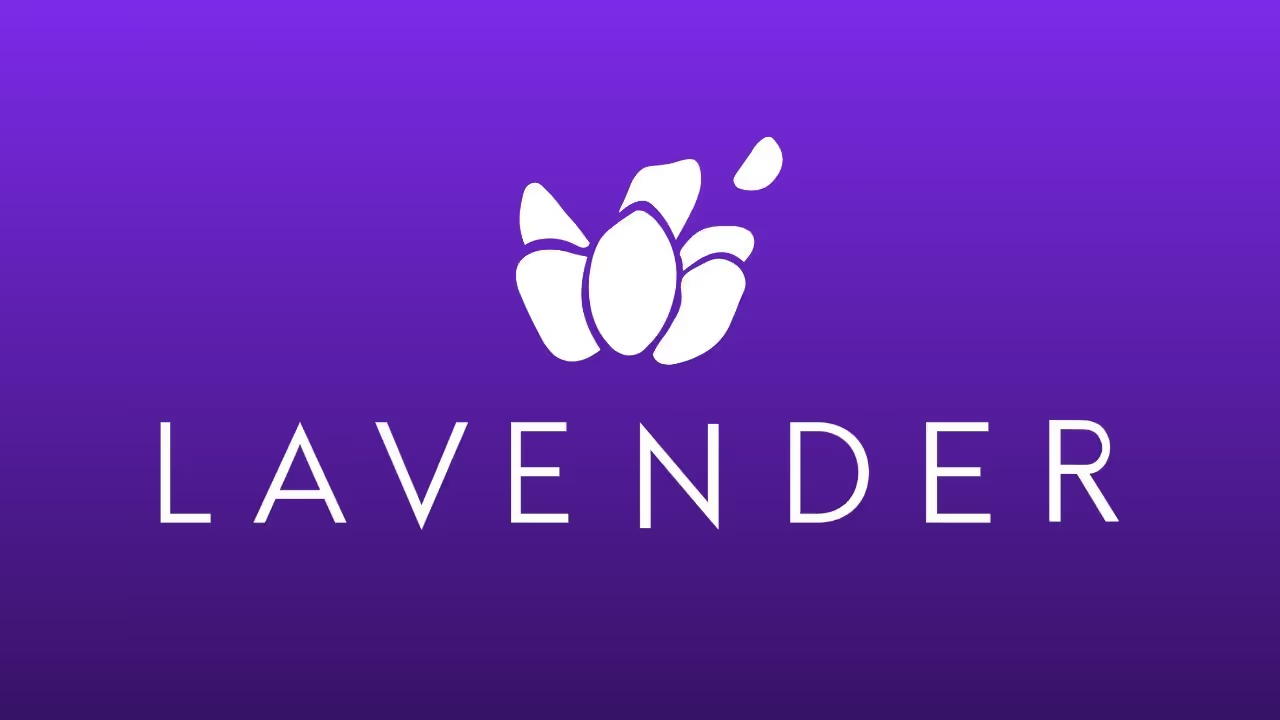
Lavender is an AI sales email coach. It can start your email for you or read an already-written email to score it and give personalization suggestions. It also understands email guidelines, so it can provide you with tips for staying out of spam, read your tone, and provide recommendations for improving clarity.
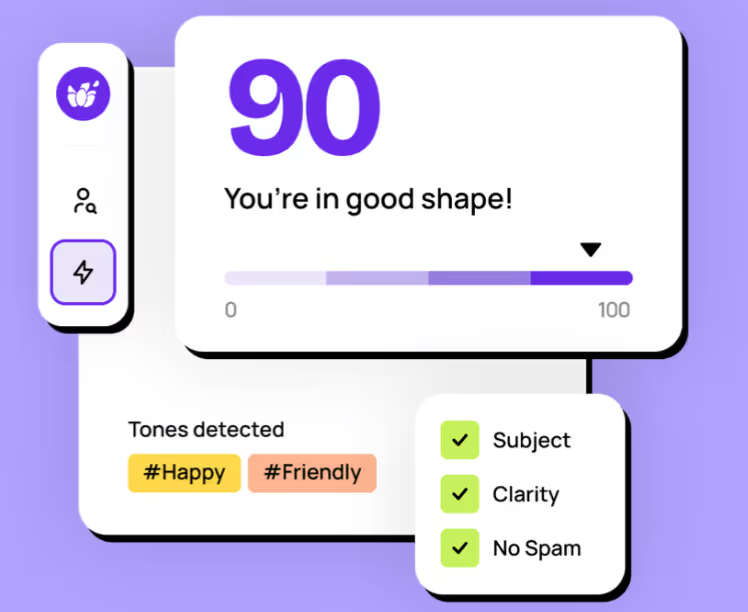
Best for: Writing sales emails
3. Clari

Clari is an AI-powered sales engagement and sales intelligence platform. Clari can make sales and revenue predictions based on your data, analyze and organize your communications, and create new content based on the context of your conversations.
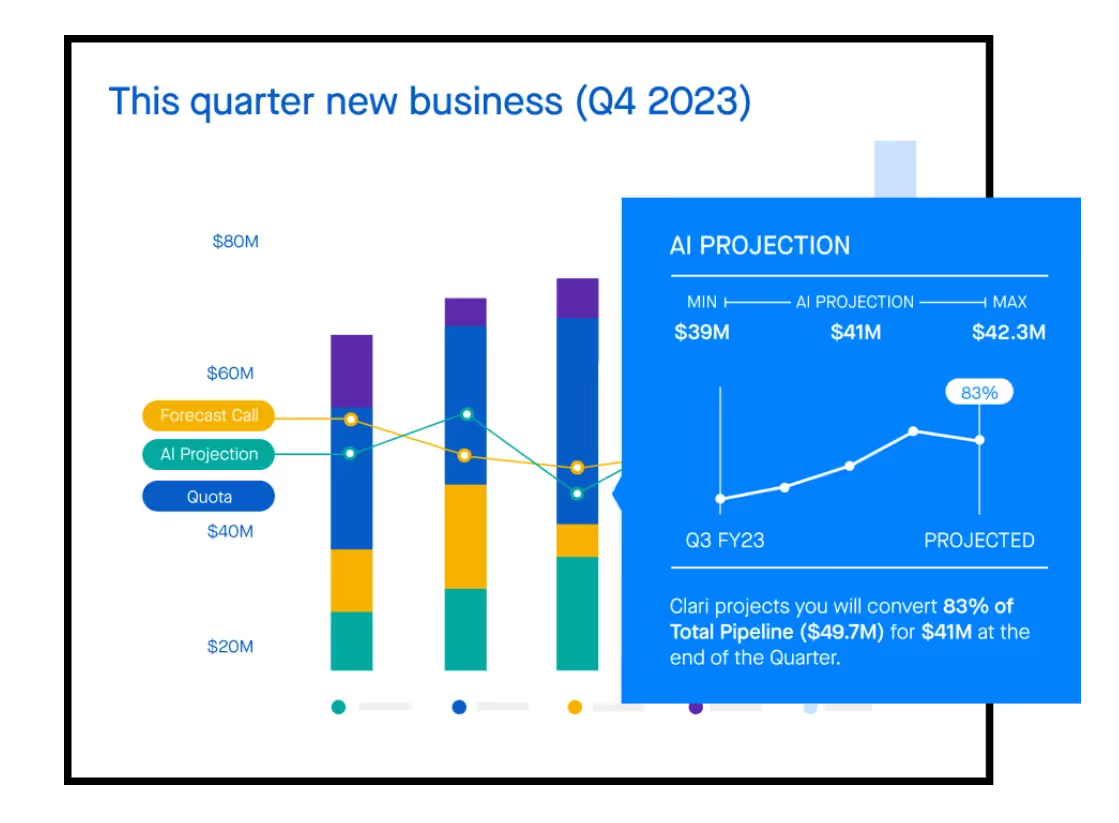
Best for: Sales and revenue forecasting
3. Pipedrive

Pipedrive is a CRM and sales pipeline manager that offers an AI sales assistant. Pipedrive’s AI tools can generate emails, summarize emails, provide tool integration recommendations, and summarize deals to tell you where you stand with a client.
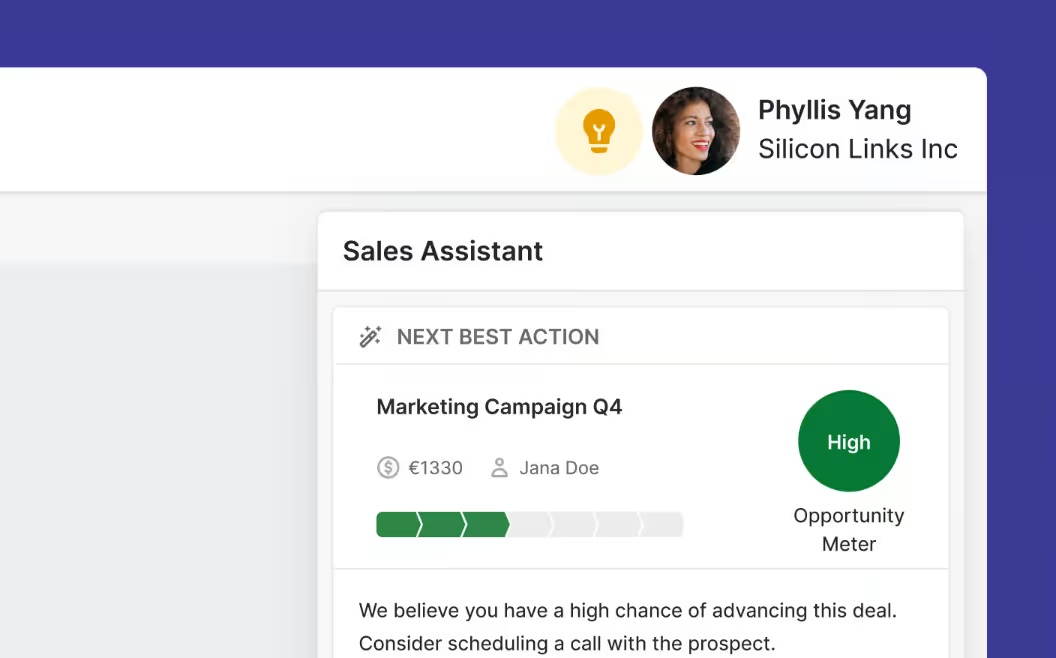
Best for: Summarizing deals and current opportunities
Use the Best AI Sales Assistant for Just-in-Time Enablement
AI sales assistants won’t replace sales professionals—but they can give them back valuable time to focus more on what matters: connecting with prospects and closing deals. These AI tools can personalize interactions, generate and improve content, and give your training a boost.
If you’re looking for the best AI sales assistant, consider one with just-in-time enablement, like Spekit. Spekit offers just-in-time training, as well as content generation, summarization, and recommendation technology. Your team gets what they need right when and where they need it most.




